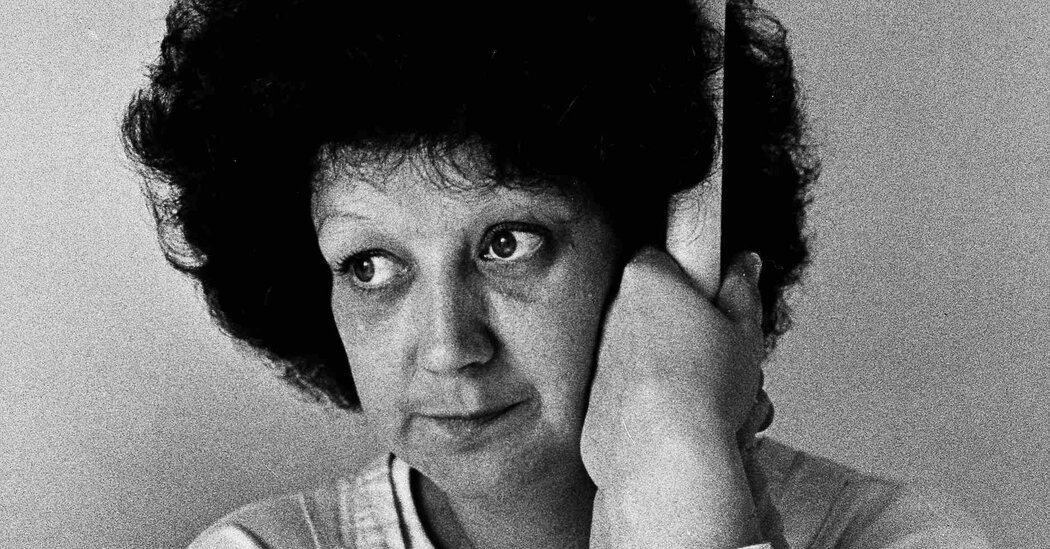
Norma McCorvey, the Jane Roe at the center of Roe v. Wade, was an imperfect plaintiff.
When she undertook Roe as a young single woman in Dallas, she gave no thought to the fight for reproductive rights. She was barely getting by as a waitress, had twice given birth to children placed for adoption, and simply wanted an abortion. She later lied about how she got pregnant, saying that she had been raped. When, more than a decade later, she came clean and wished to join in earnest the movement she had come to represent, its leaders denied her a meaningful part in their protests and rallies.
“I think they’re embarrassed,” McCorvey told Texas Monthly in 1993. “They would like for me to be college-educated, with poise and little white gloves.”
Still, Roe remained central to McCorvey’s life, bound to her by those same two crosscurrents that would frame the abortion debate in the United States — religion and sex.
McCorvey had hundreds of partners, nearly all of them women, she said. She also worked for a time as a prostitute in Dallas. But she had been raised a Jehovah’s Witness and saw sex as sinful. That her plaintiffship had made abortion legal left her fearing for her soul. That was part of the reason she became born again in 1995, she said — the better to join the fight against Roe.
Still, despite her public reversal, McCorvey — like a majority of Americans now — felt that abortion ought to be legal through the first trimester. She shared this in the first interview she ever gave, days after Roe, and she shared it again in her last, speaking with me from a hospital bed at the end of her life. (During my decade of research for “The Family Roe,” a book on Roe and its plaintiff, I spent hundreds of hours interviewing McCorvey.)
Her private papers — which I found in the garage of her former partner, just before the house was lost to foreclosure — offer a firsthand insight into McCorvey as she really was: a woman whose torments and ambivalences about abortion mirror those that divide the country, and who continues to be relevant in the new, post-Roe world.
Here is a sampling of the material.
McCorvey was sent to a Catholic boarding school, and later, at 16, to a state boarding school for “delinquent girls.” She enjoyed being away from her family, and had a run of girlfriends. But her mother, Mary Sandefur, beat her for being gay, Sandefur said in an interview, and McCorvey came to see sex and her sexuality as sinful and illicit. Years after she got pregnant for the third time, and sought an abortion, she told people that she been raped, presenting herself as not a sinner but a victim.
McCorvey was the third consecutive generation in her family to get pregnant out of wedlock, according to documents and interviews with members of her family. Her grandmother quickly married, while her mother was made to leave town, give birth in secret and surrender her child to her parents.
McCorvey worked many jobs to get by — waitress and drug dealer, prostitute and painter, respiratory therapist and bond-runner. Money was a constant struggle. And when, in 1969, she got pregnant and found an unlicensed doctor who would perform an abortion, she could neither afford his $500 fee nor the cost of flying to California, where abortion was legal.
In time, McCorvey turned her plaintiffship into a career, and changed her public stance repeatedly, depending on her audience. But her private opinion on abortion did not change: On the day after her Christian rebirth, as well as at the end of her life, she repeated what she had first told The Baptist Press in 1973: that abortion should be legal through the first trimester.
Leaders in the abortion rights movement were understandably ill at ease when, in 1987, McCorvey acknowledged having lied about being raped. But even after she apologized, and devoted years to educating herself about Roe and abortion, she was all but shunned — “scorned, rejected, snubbed, discredited and excluded,” in the words of Barbara Ellis, an activist with the movement.
In April 1970, Linda Coffee and Sarah Weddington, the two lawyers representing McCorvey, amended Roe v. Wade to make it a class-action suit not only on her behalf, they wrote, but also including “all other women similarly situated.” They detailed that situation in an affidavit, asserting, among much else, that their pseudonymous plaintiff could not afford to travel to where abortion was legal and safe.
McCorvey found comfort in religion, particularly in the patron saints and rosaries that became a part of her daily life after she converted to Catholicism in 1998. But she also told a filmmaker in 1995 that, had the abortion rights movement embraced her, she never would have left it. Most upsetting to her, she said, was learning in 1992 that her lawyer Weddington, who had not tried to help McCorvey have an abortion, had had one herself.
This was entirely false. The first time McCorvey spoke of being raped was in an article in Good Housekeeping that ran in June 1973, five months after the Roe decision. Her lawyer, Coffee, said in an interview that the article was the first time she and her co-counsel had learned of McCorvey’s rape allegations.
Joshua Prager is the author of “The Family Roe: An American Story,” a dual biography of Roe v. Wade and its plaintiff. The book was a finalist for the 2022 Pulitzer Prize for General Nonfiction.




